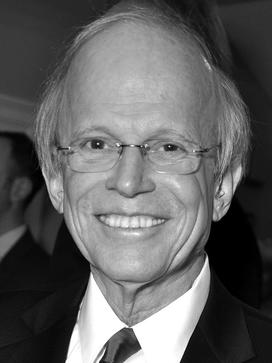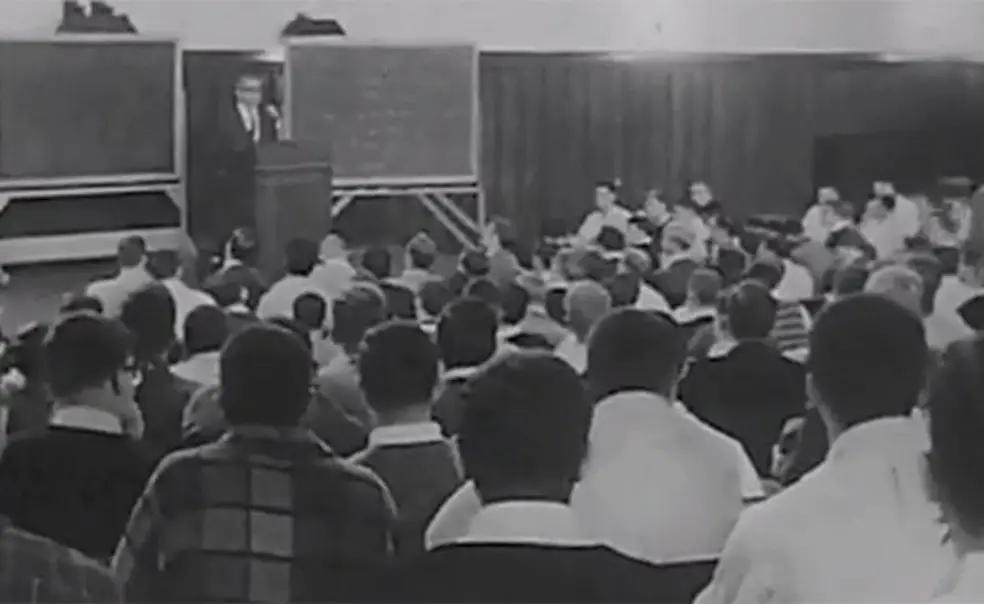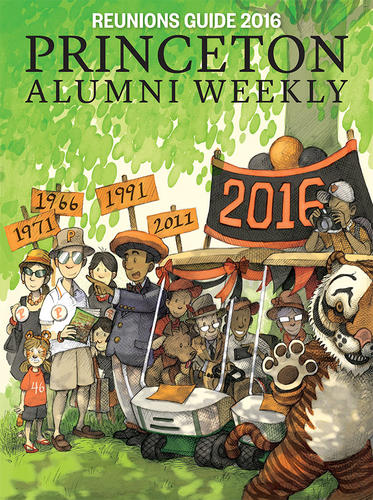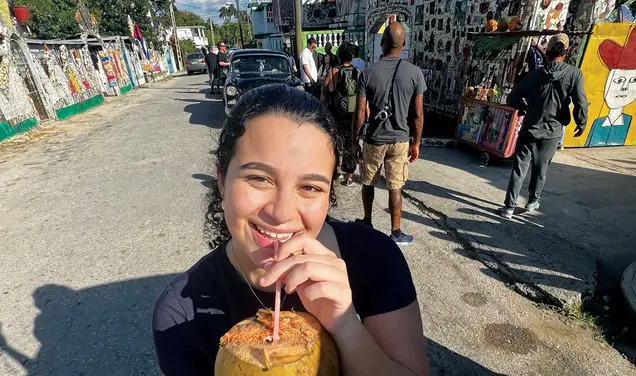Essay: Lights! Action! Memories!

Landon “Lanny” Y. Jones ’66 was editor of PAW from 1969 to ’74 and later editor of Money and People magazines.
Five years ago, as the Class of 1966 started planning its 50th reunion, a bright idea popped up. We would have a hefty class reunion book, of course, and a class survey ... but what about something truly different — a film? The model I had in mind was Kevin Rafferty’s 2008 documentary, Harvard Beats Yale, 29–29, in which clips of the famous 1968 Harvard-Yale football game are interspersed with contemporary interviews of players from both teams who had participated. Their reflections gave insights into The Game itself but, more important, offered affecting and often poignant insights into the 1960s, the bittersweet nature of aging, and the role important memories of events continue to play in our lives.
What if we could do the same thing, not with football but with campus life? Mix ’60s photos and film clips with present-day interviews with classmates reflecting on their college days. What might we learn about the character of that period — and about Princeton itself?
We learned a lot. With the help of talented Princeton-based filmmaker Evelyn Tu and 17 generous classmates who funded the film (thereby enabling free DVDs to be given to all classmates) and received below-the-title billing as producers, we went to work. I had four years to line up the interviews. I knew I wanted a representative group — not only class leaders, but athletes, political activists, writers, pranksters, gays, ROTC members, and some of the first women to attend Princeton as undergraduates, in the Critical Languages Program. We had no travel budget, so we had to rely on these classmates to come to Princeton, where we would film them in just about every downstairs room in my house.
They did not hold back. One of the few African Americans in our class, John Williams, recalled the fuss made by his friends when a town barber refused to cut his hair. Jon Wiener, an ardent Vietnam War foe who founded the Students for a Democratic Society chapter at Princeton, described what it was like to be outside of the clubby campus mainstream. Carl Eastwick talked about his service in Vietnam. John Lamb listed the “three I’s” then used to characterize gay people (“The law says you are illegal; the doctors say you are insane; and the church says you are immoral.”) On the lighter side, T.R. Reid described the hoax he helped devise to admit the fictitious J.D. Oznot to the Class of 1968.
If there is a single theme that emerges about campus life in the film titled, Looking Back: 50 Years Later, it is that this was a time of transition. We had one foot in the all-male, club-oriented Princeton of F. Scott Fitzgerald ’17’s time. On the other hand, sex, drugs, and rock ’n’ roll had all arrived and were gaining traction. Just a few years after we left, the entire campus would erupt in tumult. But the seeds of change were already in place.
Despite the clear difficulties many of the people I interviewed experienced as undergraduates, today they all have retained warm and affectionate memories of Princeton. “Princeton’s charter is strong,” said Williams, in a typical comment. Why do they feel this way? They often said it has something to do with the support they found from their friends and faculty.
What it really suggests, moreover, is that reconciling their Princeton experience has helped these classmates adapt successfully to later life. Our surveys have found a strikingly high level of optimism in our class, both at the 25th and 50th reunions. According to psychologist Sally Witte s’66, optimism is arguably a stable trait, and people who see the positive in situations tend to have that cognitive style throughout their lives. “To graduates facing the world outside of Princeton in 1966,” she said, “there was much uncertainty: careers, marriage, life choices confounded by the Vietnam War, the draft, and social and political unrest, turbulent times. In having survived all of the above, it’s not unexpected that many of the 50th-reunion celebrants would express a sense of wellbeing, strength, satisfaction, even happiness.”
The great pleasure of making Looking Back: 50 Years Later was that we were able to help classmates unlock memories of a problematic Princeton that they valued then and treasure now.













No responses yet